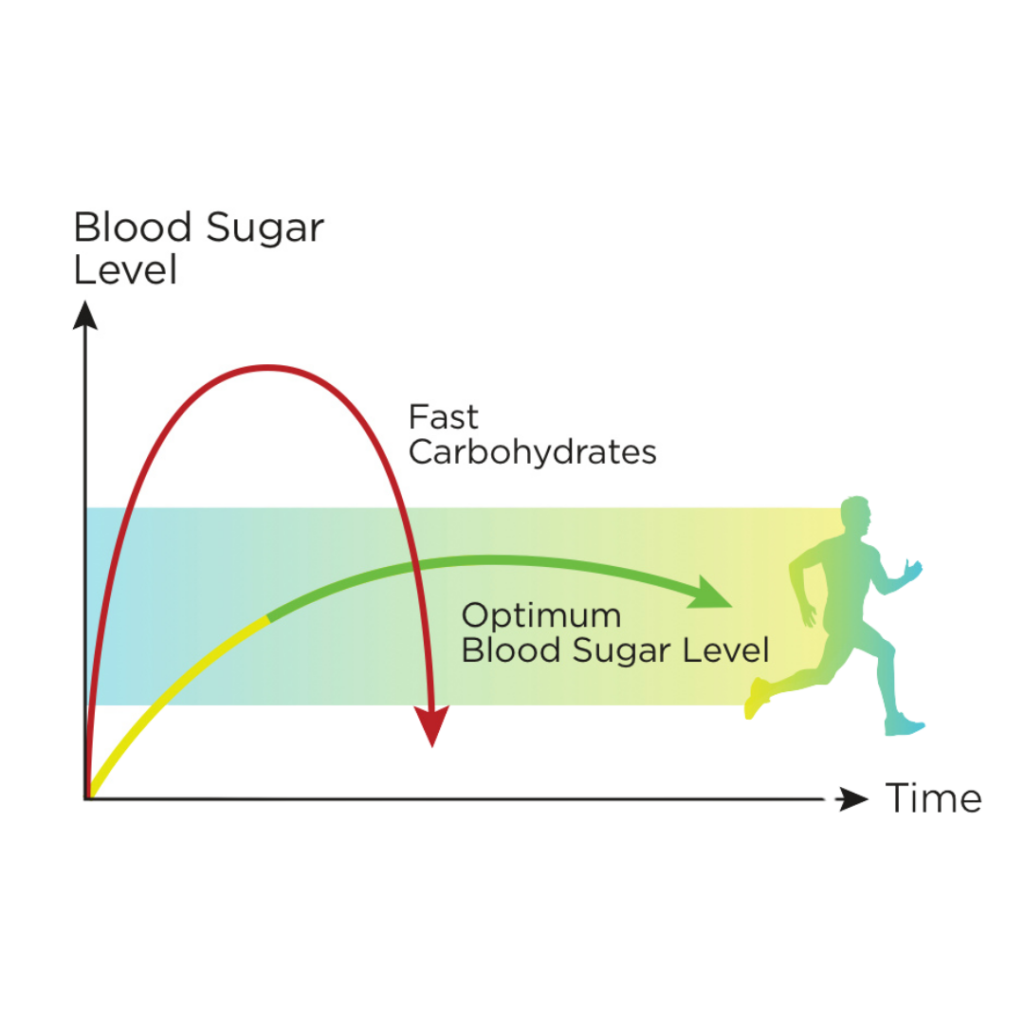Isomaltulose – Low GI Sugar
x

The disaccharide sugar Isomaltulose is derived from sucrose through natural enzymatic reaction and is naturally occurring in honey. Isomaltulose exhibits remarkable stability under various conditions, including high temperatures and acidity, making it a functional ingredient for a wide range of applications.
One of the notable properties of isomaltulose is its slow and sustained release of glucose. Unlike common sugars such as sucrose or glucose, isomaltulose is leading to a slower increase of the blood sugar levels. This characteristic is attributed to the rearranged linkage between its glucose and fructose components, which hinders rapid absorption. As a result, isomaltulose has a low glycemic index (GI) compared to other sugars, making it suitable for individuals seeking to manage their blood sugar levels.
The low glycemic response of Isomlatulose ensures prolonged energy supply without the abrupt spikes and crashes often associated with high-GI carbohydrates. This sustained energy release makes it an appealing choice for athletes and individuals engaged in physical activities. Additionally, Isomaltulose promotes dental health due to its non-cariogenic properties, as it is less prone to fermentation by oral bacteria, thus reducing the risk of tooth decay. Furthermore, Isomaltulose is employed in the formulation of dietary products aimed at weight management, as it can contribute to prolonged satiety and reduced calorie intake.
In summary, Isomaltulose is a unique carbohydrate compound distinguished by its slow glucose release, low glycemic index, and versatility in various applications. Its prolonged energy supply and dental health benefits make it a valuable ingredient, particularly in the fields of sports nutrition and dietary products. Given its wide-ranging advantages, Isomaltulose continues to garner attention in the food and beverage industry as a promising alternative to traditional sugars.
- Sports and Energy Drinks: Isomaltulose can be used in sports and energy drinks to provide sustained energy for athletes and active individuals.
- Meal Replacement Shakes: In meal replacement shakes, Isomaltulose helps control hunger and provide steady energy throughout the day. Studies indicate that Isomaltulose promotes the utilization of fat.
- Backery Products: Isomaltulose can be incorporated into baked goods such as bread, muffins, and energy bars. The reduced sweetness compared to normal sugar leads to a pleasant taste of bakery products.
- Protein bars: Protein bars can contain Isomaltulose to offer a balanced source of energy along with protein.
- Cereals and Granola: Isomaltulose can be used in breakfast cereals and granola products to provide a slow-release energy source.
- Fruit Juices, Smoothies and Softdrinks: In fruit juices and smoothies, Isomaltulose can be used as a sweetener to help maintain a lower glycemic index.
- Taste Masking: Isomaltulose can be utilized to mask unpleasant taste in various kind of foods.
Benefits of using Isomaltulose:
- Athletes and Active Individuals: Isomaltulose provides a sustained release of glucose, making it a valuable source of long-lasting energy during physical activities. It can help athletes maintain energy levels and endurance while reducing the risk of blood sugar crashes.
- Managing Blood Sugar Levels: Isomaltulose has a low glycemic index (GI), which means it has a minimal impact on blood sugar levels. People with diabetes or those concerned about managing their blood sugar can use Isomaltulose as a sugar substitute to help stabilize their glucose levels.
- Weight Management: Isomaltulose can contribute to feelings of fullness and satiety due to its slow digestion. This can be beneficial for those looking to control their appetite and calorie intake as part of a weight management plan.
- Dental Health Isomaltulose is non-cariogenic, meaning it is less likely to promote tooth decay compared to some other sugars.
- Digestive Sensitive: Isomaltulose is well-tolerated by many people and is suitable for those with digestive sensitivities or intolerances to other sugars. It doesn’t cause and digestive discomfort, making it the perfect choice for sport nutrition.
- Calories: 4 calories per gram, similar to sucrose
- Carbohydrates: 100 gram / 100 gram
- Recommended Daily Intake: There is no specific recommended daily intake for Isomaltulose
- Sweetness: Isomaltulose is about 50% to 60% as sweet as sucrose. The sweetness profile is less intense than sucrose but still provides a noticeable level of sweetness
x
x
x
x
x
x

x

j
The GI of Isomaltulose
j